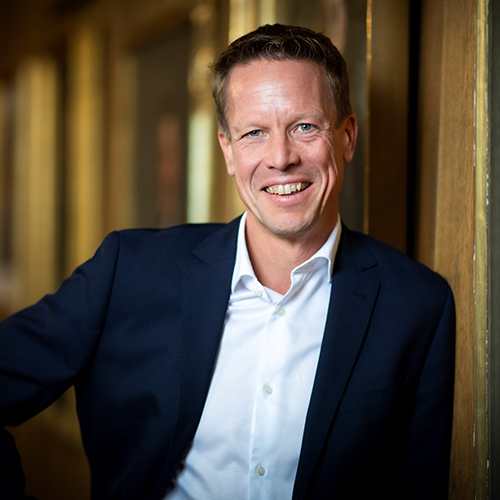-
Home
-
About Elfack
-
Exhibitors
-
Activities
-
Plan your visit
-
For exhibitors
-
“If industry and buildings become more energy efficient, electricity prices will go down”
 Electrification and energy efficiency are important topics in both industry and society at large right now. The ongoing transition and rising electricity prices place high demands on finding better and smarter solutions quickly. Mats Peterson, business area manager for ABB Electrification in Sweden, says that most of the technical solutions are already on the market, but that the skills and incentives to apply them need to change.
Electrification and energy efficiency are important topics in both industry and society at large right now. The ongoing transition and rising electricity prices place high demands on finding better and smarter solutions quickly. Mats Peterson, business area manager for ABB Electrification in Sweden, says that most of the technical solutions are already on the market, but that the skills and incentives to apply them need to change.
There is a huge need right now in various sectors, from buildings to transport, to become smarter and more energy efficient. ABB has been working on electrification and sustainability for a long time and now sees a trend where smart, digital and flexible solutions are becoming more important. Energy efficiency is the best way to bring down electricity prices quickly.
– You want to be able to keep electricity consumption down when it’s expensive and store it when it’s cheap, so you can use it when you need it. There is great potential for energy efficiency through smart digital solutions, and industry is at the forefront of this with its control systems and its control over various processes, whereas the real estate sector, for example, still has a long way to go, Mats says.
Sustainability targets and high electricity prices have made more parts of society wake up to the realisation that something has to change. But what?
– If industry and buildings were to become more energy efficient and thus reduce their energy consumption, electricity prices would go down. In some areas, such as energy storage, new technological innovation is needed. So we need to work together to find the technological solutions there. But, in many other areas, the solutions that are needed exist. The challenge is to find incentives to make the change. To a large extent, Sweden’s leaders need to set clear goals about the path we want to take and when we will be ready.»
– One example is in the transport sector, where we are doing a lot in terms of the charging infrastructure and all the solutions are in place, but we don’t have a clear direction. If the authorities take the lead and set targets, industry will fix this. Now we have received a boost from the high electricity prices, but the change has to be implemented and then there have to be clear requirements and incentives.
A changing industry at ELFACK 2023
In a world that is constantly changing, the demands and the needs also change rapidly. A positive outcome of this is the mobilisation of forces in society to address the challenges we face.
– In previous years, there has been a strong focus on electrification and clean energy issues to reduce emissions. One third of emissions come from transport and another third from industry, so there is a lot to be gained from electrification. And we’re going to need a lot more electricity, so we need to expand solar and wind power, which in turn means we need to reinforce our electricity grids, all the way from the Swedish power grid right down to the individual electric car charger. That has been the focus. But now energy efficiency is also high on the agenda, because that’s where we can make the fastest impact. We need to make both industries and buildings more energy efficient, for the good of both the environment and the cost of living. This is a focus of our efforts at ABB.
At Elfack 2023, ABB Electrification will be on hand to demonstrate both electrification and energy efficiency solutions. And to succeed in making energy use more efficient, the first step is to start measuring and analysing.
– We want to show that it is possible to measure your processes to identify energy consumption in your building or production process. Only then can you review your usage and replace the parts you need with smart and controllable solutions. Elfack is an important meeting place where we can have a dialogue about these challenges. We need to help each other and share our knowledge and ideas with each other. We need to do this – not just for our own sake but for the sake of the next generation, Mats Peterson concludes.